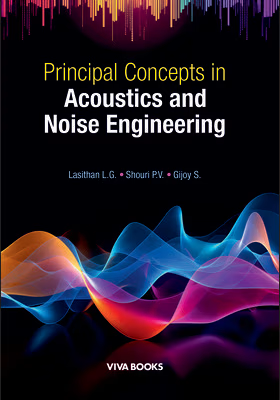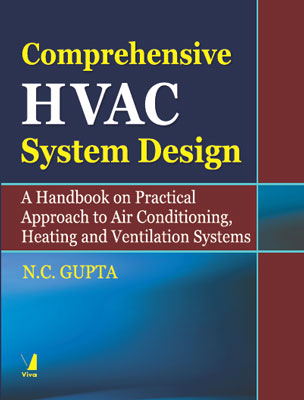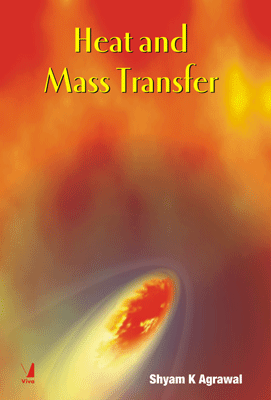
Cool Thermodynamics
Cool Thermodynamics
The Engineering and Physics of Predictive, Diagnostic and Optimization Methods for Cooling Systems
₹1,525.50 ₹1,695.00 Save: ₹169.50 (10%)
Go to cart-
Out of Stock
ISBN: 9788130931340
Bind: Hardbound
Year: 2015
Pages: 280
Size: 153 x 229 mm
Publisher: Cambridge International Science Publishing
Published in India by: Viva Books
Exclusive Distributors: Viva Books
Sales Territory: India, Nepal, Pakistan, Bangladesh, Sri Lanka
Description:
This book is geared toward those interested in the engineering and physics of air-conditioning and refrigeration devices (chillers). Analytic thermodynamic models are developed for a wide variety of cooling systems and a broad range of operating conditions. These models are easily implemented in the field or laboratory. Although we focus upon mechanical (electrically-driven) chillers - primarily reciprocating and centrifugal machines - there is also substantial material on heat-driven absorption chillers. Heat pumps and heat transformers are also addressed. A few less common chiller types are also treated, such as thermoelectric, thermoacoustic and vortex-tube units. We have tried to present the material in a manner that can appeal to both the engineer and the physicist, and can form a bridge between the two communities in their analysis and presentation of cooling systems. In each chapter, we try to capture the basic physics of the problem, and to emerge with quantitatively accurate predictive and diagnostic tools. We aim for simple thermodynamic models where the functional dependences of chiller performance on the major operating variables are transparent. And all the models presented are required to stand the test of comparison against experimental performance data. The reader is shown how chillers can be viewed as input-output devices, viewed from the outside and probed with only externally-measurable parameters such as power input, cooling rate and coolant temperatures. We also provide the type of information needed by chiller manufacturers and developers in designing and assembling new designs. How will a given modification in a chiller component affect efficiency and cooling rate? What is the combination of operating conditions of the individual components that maximizes chiller efficiency at a required cooling rate? At the same time, we examine to what degree the empirical evolution of chiller design and construction has reached thermodynamically optimal performance. Many of the chapters can serve as an industry-oriented course tailored to cooling engineers. Both engineering-oriented and physics-oriented topics are covered in most of the chapters. The book can constitute part of a university course on cooling systems. Sections of the book can be included in introductory and advanced thermodynamics courses. More than a dozen tutorial examples are included.
Target Audience:
Students and academics of physics, mechanical/production engineering, researchers.
Contents:
What the book has to offer and the intended audiences: Modelling, diagnosing and optimising cooling devices • Thermodynamic and operational fundamentals • Mechanical chillers • Absorption chillers • Thermoacoustic chillers • Thermoelectric chiller • Standards, measurements and experimental test facilities for chillers and heat pumps • The basics of standards • Entropy production, process average temperature and chiller performance: Translating irreversibilities into measurable values • The fundamental chiller model in terms of readily-measurable variables • Experimental validation of the fundamental model and optimization case studies for reciprocating chillers • Finite-time thermodynamic optimization of real chillers • Coolant flow rate as a control variable • Optimization of absorption systems • Quasi-empirical thermodynamic model for chillers • The inadequacy of endoreversible models • Heat exchanger internal dissipation in chiller analysis and the essential role of accurate process average temperatures • Temperature-entropy diagrams for representing real irreversible chillers • Caveats and challenges
About the Authors:
Kim Choon Ng was born in 1952 in Malaysia. He is now an Associate Professor, National University of Singapore, Department of Mechanical & Production Engineering, Singapore. He received his Ph.D. in 1980, from the University of Strathclyde, United Kingdom.
Prof. Ng has published over 40 papers in international peer-reviewed journals in the areas of: solar energy, chiller modeling and experimental testing, and two phase flow.
He is a member of the board of reviewers of the lnternational Journal of Refrigeration, Solar Energy Heat Transfer Engineering and Applied Thermal Engineering, a Chartered Engineer (UK) and a registered Professional Engineer (Peng) in Singapore.
Jeffrey M. Gordon was born in 1949 in the USA. Currently, he holds the rank of professor at Ben-Gurion University of the Negev (Israel), in the Department of Energy & Environmental Physics, Sede Boqer Campus, and the Department of Mechanical Engineering, Beersheva Campus. He received his Ph.D. From Brown University in 1976.
Prof. Gordon has authored over 120 papers in international peer-reviewed journals in the areas of: the engineering and physics of cooling systems, finite-time thermodynamics, nonimaging optics, biomedical optics and solar energy. He is an Associate Editor of the journal Solar Energy; editor of the lnternational Solar Energy Society Background Paper Series, and former associate editor of the ASME J. Of Solar Energy Eng., Progress in Photovoltaics and Advances in Thermodynamics.
Prof. Gordon is also a member of the board of reviewers of over a dozen additional leading journals, including Journal of Applied Physics, American Journal of Physics, lnternational Journal of Heat and Mass Transfer, Applied Optics, Solar Energy Materials, and Journal of the Optical Society of America.




